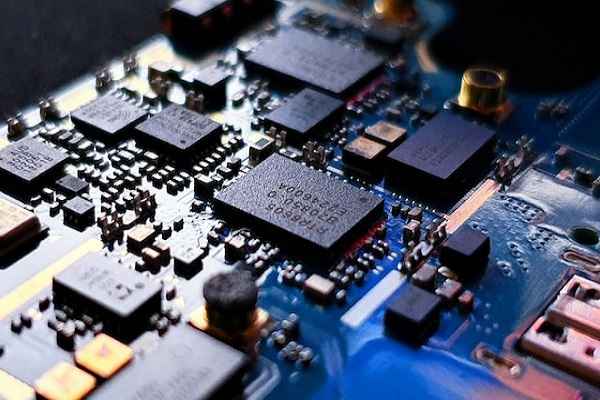As the world becomes increasingly interconnected, the significance of national security in the digital age cannot be overstated. In recent years, concerns over the United States' reliance on foreign semiconductor manufacturers have prompted a growing number of policymakers to advocate for bolstering domestic chip production. In line with this sentiment, a group of senators has called upon the Department of Commerce to prioritise national security in chip funding. This article explores the reasons behind this push, the potential implications, and the broader context of this critical issue.
- Growing Concerns: National Security and Semiconductor Dependence
Semiconductors, or chips, form the backbone of modern technology, powering everything from smartphones to advanced military systems. Recognizing their strategic importance, senators from both sides of the aisle have raised concerns about the United States' heavy reliance on foreign chip manufacturers, particularly in nations like China and Taiwan. The fear is that this dependence on foreign sources could jeopardise national security, leaving the U.S. vulnerable to disruptions in the supply chain, intellectual property theft, or even malicious hardware implants.
- Rapid Technological Advancements and Geopolitical Considerations
The push for prioritising national security in chips funding comes at a time when rapid technological advancements are occurring in fields such as artificial intelligence, 5G networks, and quantum computing. These innovations not only provide immense economic opportunities but also create new security challenges. With nations like China investing heavily in their semiconductor industries, the senators argue that the United States must take swift action to maintain its technological leadership and safeguard national interests.
- The Role of the Department of Commerce
The Department of Commerce plays a crucial role in overseeing export controls and licensing regulations for sensitive technologies. Senators argue that the department should utilise its authority to promote domestic chip manufacturing and reduce reliance on foreign suppliers. This would involve offering financial incentives, grants, and research funding to boost domestic chip production capabilities. By providing support to domestic manufacturers, the United States can strengthen its supply chain resilience and reduce potential vulnerabilities.
- Strategic Investments: Building Domestic Semiconductor Infrastructure
To achieve greater self-sufficiency in chip manufacturing, senators have proposed increased investments in research and development, as well as incentives for companies to establish or expand semiconductor fabrication facilities within the United States. This initiative aligns with the broader goal of reviving domestic manufacturing capabilities across various sectors. Building a robust semiconductor infrastructure would not only enhance national security but also stimulate job creation and spur economic growth.
- Collaboration between Government and Industry
Addressing the challenges of semiconductor dependence requires close collaboration between the government and industry stakeholders. Senators are calling for public-private partnerships to support research and development initiatives, as well as the establishment of consortiums aimed at fostering innovation and knowledge sharing. By leveraging the expertise of both the public and private sectors, the United States can advance its semiconductor capabilities while maintaining a competitive edge in the global market.
Broader Implications
The call to prioritise national security in chip funding has significant implications for multiple sectors. Beyond defence and intelligence applications, semiconductors are vital for emerging technologies like autonomous vehicles, renewable energy systems, and healthcare devices. Reducing dependence on foreign suppliers would enhance supply chain resilience, mitigate risks, and protect critical infrastructure in various industries. Moreover, it would also provide an opportunity to strengthen partnerships with allied nations, fostering technological collaboration and shared security objectives.
Concern
The push to prioritise national security in chips funding reflects the growing recognition of the risks associated with relying heavily on foreign semiconductor manufacturers. By investing in domestic chip production and research capabilities, the United States can safeguard its national security interests, stimulate economic growth, and maintain its technological leadership. The Department of Commerce's role in promoting these initiatives, along with collaboration between the government and industry, will be critical in achieving these objectives. As the world becomes more interconnected.
-black.png)










